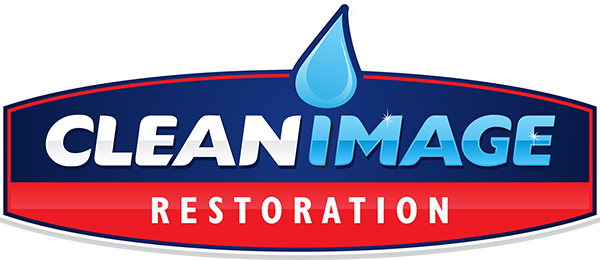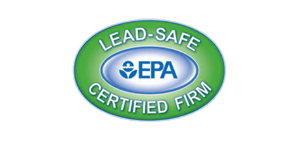If flooding damage results, for example, landlords will be held liable for repairing structures like flooring and walls while tenants will need to make arrangements to secure possessions such as furniture and clothing themselves.
Tenants should review their lease agreements carefully to understand their rights as renters. In general, tenants have the ability to withhold rent until the property conforms with its terms.
Water Damage Detectors in Kennewick, Washington
Water damage can be one of the greatest concerns for landlords and tenants alike, diminishing property values, requiring costly repairs, and creating potential health risks for residents. In many states, both landlords and tenants are legally required to keep properties in good condition; landlords must regularly have their plumbing, electrical systems and appliances inspected in order to detect issues while tenants should notify their landlord if any issues arise within their tenancy agreement.
Landlords can help their tenants detect problems early by providing information about how to detect leaks or flooding on an ongoing basis, encouraging tenants to monitor the property for leaks or flooding and answering any inquiries about what steps should be taken if any issue occurs. Landlords may also consider hiring contractors for inspections on pipes, appliances and other elements within their properties that might pose potential issues.
As soon as a tenant notices water damage in their apartment, they should immediately call their landlord and document it by taking pictures and videos. When necessary, landlords should hire professional repairman immediately; failing this, they could face charges for breach of lease agreement as well as offer temporary housing if the damages are severe.
Flood and storm damages often fall outside the responsibility of landlords; if damage occurred as a result of natural forces such as floods or storms, however, landlords could still be held liable if they knew about and ignored it. Tenants should consider purchasing renters insurance to protect their belongings and living expenses if disaster strikes.
Even when landlords do everything right, water damage may still occur. Pipes may burst, sprinkler heads may malfunction during heavy rainfall or gunfire can ignite fires which destroy buildings and their plumbing systems. Landlords can help mitigate some of these risks by providing their tenants with instructions for using water damage detectors and providing sufficient fire suppression equipment in each of their properties.
Water Removal Equipment
Water damage is one of the greatest worries for landlords and tenants alike, but working together can reduce damages while protecting property values. It is critical that landlords and their tenants work together to reduce potential impacts to both structures and reduce any resulting disruptions to daily operations.
As soon as tenants notice water damage to their rental units, it’s best practice to notify their landlord immediately and review their lease agreements to understand their rights as tenants. In Washington state for instance, landlords must address issues that prevent tenants from using appliances they supplied such as refrigerators, ovens or stoves; and also take steps to ensure plumbing and major equipment remain in good condition — even if not covered under renters insurance policies.
If you live in a shared apartment building, it’s essential that your neighbors above are informed of any problems with the ceiling or leaking pipes that you experience. Leaks can originate in many ways including toilets, dishwashers and overflowing bathtubs; unfortunately it can often take property management some time before they can locate their source and remedy any damages that have already been done by leaks.
Water damage repairs will cost less when addressed quickly. Tenants should take steps to keep moisture levels down by installing plastic sheets over carpets, using towels to soak up pooled water, covering furniture with vinyl shower curtains and placing plastic sheets over them if they notice dripping, using wet/dry vacuums if they spot any leakage, and placing plastic sheets over furniture as moisture barriers. If any dripping occurs, tenants should use wet/dry vacuums immediately for removal of excess liquid.
As soon as you spot any wood or drywall damage, notify your landlord immediately as this issue can escalate quickly and require substantial costs to repair.
Landlords should allow tenants back into their properties as soon as it’s safe. This will enable them to assess the damage and determine the most cost-effective path forward for repairs.
If the property becomes inhabitable, landlords may be required to waive rent during repairs and make other accommodations for tenants. State law doesn’t specify that landlords provide temporary housing during disasters; however, many do.

Dehumidifiers in Washington
Dehumidifiers help remove excess moisture from the air, as high humidity levels can create various issues in both older and newer homes, including:
Allergies increase, mold and mildew proliferate, wood rot and warp become more likely, creating an unpleasant aroma and making people sick. Pests such as spiders and cockroaches also thrive in damp environments.
Apartment buildings often utilize central air conditioning systems with humidifiers or dehumidifiers installed within the ductwork, and it is important that these are serviced twice annually to ensure they remain working optimally. Furthermore, stand-alone dehumidifiers may also be purchased to lower humidity in specific rooms in order to help reduce allergens while protecting furnishings and electronic equipment from potential damage.
Moisture is a necessary part of daily life, but too much moisture in an apartment can be hazardous to its inhabitants’ wellbeing. Excess moisture accumulation may result in wood rotting and warping as well as mold growth – if this problem becomes serious enough, mold remediation services may be required to resolve it.
In some instances, landlords will employ water restoration companies to manage cleanup and any necessary repairs. In others cases, however, tenants are expected to handle the situation themselves by providing temporary accommodations until repairs can be completed (this may be required under tenant/landlord law). It’s wise for tenants to review their lease agreement to understand their rights in such instances.
Keep a record of any moisture problems in an apartment to use in any dispute about who should pay for cleanup or repairs, for instance a ceiling leak could be caused by an upstairs neighbor’s water heater or plumbing issues in the building – no matter the source it’s important that any problems be reported immediately and have them addressed as quickly as possible by your landlord.
- Locate the leak. The first step is to locate the source of the leak. This may be difficult, as leaks can often be hidden behind walls or under floors. However, there are a few things you can do to help you find the leak.
- Look for signs of water damage, such as wet spots on the ceiling, walls, or floors.
- Listen for the sound of running water.
- Check for any loose or damaged pipes.
- Turn off the water supply. Once you have located the leak, you will need to turn off the water supply to the area. This will prevent the leak from getting worse and causing further damage.
- Repair the leak. Once the water supply has been turned off, you can begin to repair the leak. The specific steps involved in repairing a leak will vary depending on the cause of the leak. However, some common methods of repairing leaks include:
- Using a pipe repair kit. These kits typically contain epoxy resin and a hardener that can be used to seal small leaks.
- Replacing a damaged pipe. If the leak is caused by a damaged pipe, you will need to replace the pipe. This may require the services of a plumber.
- Installing a new faucet. If the leak is coming from a faucet, you may need to install a new faucet.
- Clean up the area. Once the leak has been repaired, you will need to clean up the area. This includes removing any water that has leaked and drying the area. You may also want to use a dehumidifier to help remove any moisture from the air.
- Prevent future leaks. Once the leak has been repaired, you can take steps to prevent future leaks. This includes:
- Inspecting your pipes regularly for signs of damage.
- Replacing old or damaged pipes.
- Installing leak detectors.
- Keeping your home well-maintained.
Mold Remediation
Many people worry about mold in their home and its implications on health, with certain types being potentially hazardous. While other molds found within homes may also pose potential threats, most of those found within our own environment don’t cause illness and most frequently reported reactions from exposure include allergic responses and irritants such as coughing, sneezing and respiratory problems – this doesn’t rule out possible illness from exposure; however it may also be associated with viral infections or allergies making proving that mold exposure was the source difficult.
If your home has an excessive mold problem, professional remediation should be sought immediately. Depending on its location and type, some belongings may need to be relocated for remediation; though this process may be costly it’s worth it when considering health risks posed by mold growth.
Tenants and landlords must work together to prevent mold. This includes regularly cleaning and ventilating rooms to help reduce condensation. In addition, any building issues which might contribute to water damage and mold should be repaired as soon as possible by repairing contractors. If the mold issue becomes unbearable for tenants living there, they have the option of breaking their lease early and moving out.
Even if the mold has been professionally remedied, potential buyers should still be informed. Otherwise, when they arrive for an inspection they could become aware of it and choose not to purchase the property, costing both parties money in lost sales. Also, any future sale could require mold remediation costs be covered before closing; so having a professional inspector check for mold before listing your home could give an accurate picture of its state and help set a fair asking price.









